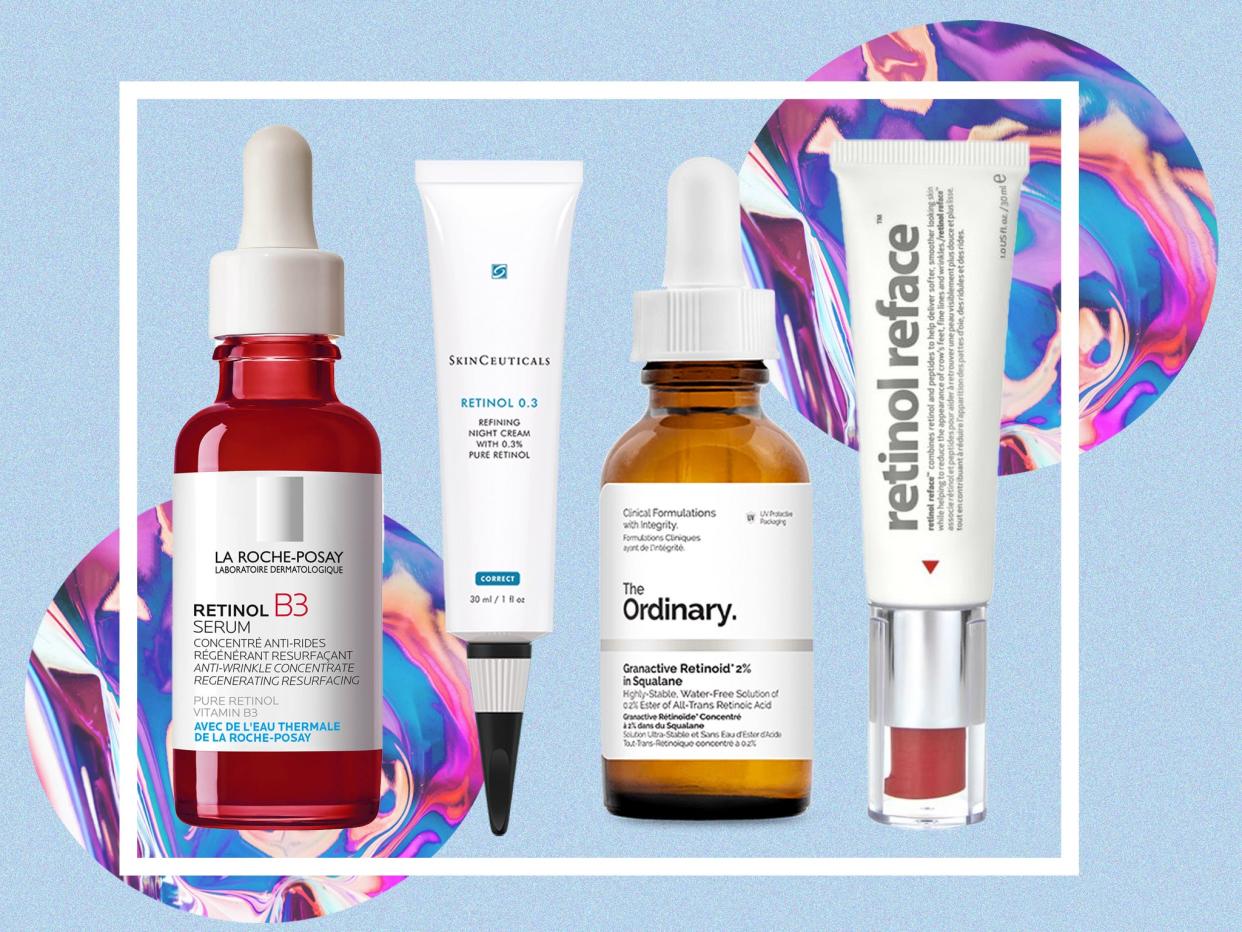10 best retinols for beginners: Creams and serums for every skin type

Retinol is an ingredient that promises big things – one of the few anti-ageing ingredients with actual science backing it up, it brightens, increases cell turnover, improves texture, reduces scarring and improves the appearance of fine lines.
But it can also sound daunting as some people find it causes irritation, dryness, redness and peeling, and then there’s confusion over strengths and different types.
The first question you may find yourself asking as a retinol first-timer is whether you’re old enough to need one. The answer is that collagen production slows from the age of 20, so if you’re over 20, you can benefit from a product that boosts it. Even if you’re not seeing major signs of ageing yet, such as fine lines, retinol use can be preventative. At the other end of the scale, you’re never too old to see positive effects from skincare.
If you start shopping around for a retinol product, you may also find the term “retinoid” used almost interchangeably with retinol. In fact, retinoid is the umbrella term for a group of ingredients derived from vitamin A, including retinol. Retinoic acid (also known as tretinoin) is the prescription strength variant available in the UK. Gentler formulas, available over the counter, contain forms of retinoid that need to be converted into retinoic acid by your skin in order to have an effect; the more conversions required, the weaker the impact on skin.
There are many other variations of retinoid, but to explain those included in products we’ve picked, the next level down from prescription retinoic acid in terms of strength is hydroxypinacolone retinoate, followed by retinol (the most commonly sold form in the UK), and lastly retinol esters such as retinyl palmitate. The actual percentage listed may be weaker by the time it’s actually effective on the skin, thanks to the conversion.
You’ll also find that retinol products come in different forms, most often a cream or a serum. If you’re nervous about using a retinol for the first time or have sensitive skin, we recommend using a cream, as it acts as a kind of buffer to soothe, hydrate and cool any irritation on application. If you want to jump straight in, a serum can penetrate the skin more quickly and effectively.
The other key variation is percentage. Many brands don’t actually list a percentage, and it isn’t the most accurate indication of strength: other factors such as the type of retinoid and the conversions required, and its formulation (such as using a cream) change a product’s impact on the skin.
Among those brands that do list a retinol percentage, beginners may like to start with a retinol in the 0.25-0.5% range, but bear in mind that some listed above 0.5% may have a gentler impact than the percentage suggests.
For brands that don’t, you can make a good estimate based on how high up the retinol comes in the list of ingredients (as a general rule, the lower it is, the lower the percentage). All the products we’ve listed below are safe for first-time users.
Just as important as which product you choose is how you apply it. Retinols can increase your skin’s sensitivity to sunlight, so always apply at night and use an SPF during the day (which we hope you’re doing already!).
They’re most effective applied to clean skin, after cleansing and toning, before you follow up with any other creams or oils. Each person’s skin will react differently to retinols: some may find they experience no irritation whatsoever, others may find it dry, tight or even red and peeling after application.
Almost everyone can build up tolerance to retinol over time, so any negative side effects should subside with two to four weeks of consistent application. Start with two or three nights a week, and build it up to more frequent use. If the irritation only gets worse, stop using the product.
All the retinols we recommend for beginners have been tested by just that, beginners. They’ve looked for long-term improvements in their skin and any negative side effects, as well as experience-affecting factors such as packaging and how it felt on the skin on first application.
You can trust our independent reviews. We may earn commission from some of the retailers, but we never allow this to influence selections, which are formed from real-world testing and expert advice. This revenue helps to fund journalism across The Independent.
Read more
Skincare layering guide: Which products to apply and in what order, according to an aesthetician
10 best retinol products: Creams, serums and moisturisers with anti-ageing benefits
12 best vitamin C skincare products for brighter and clearer skin


